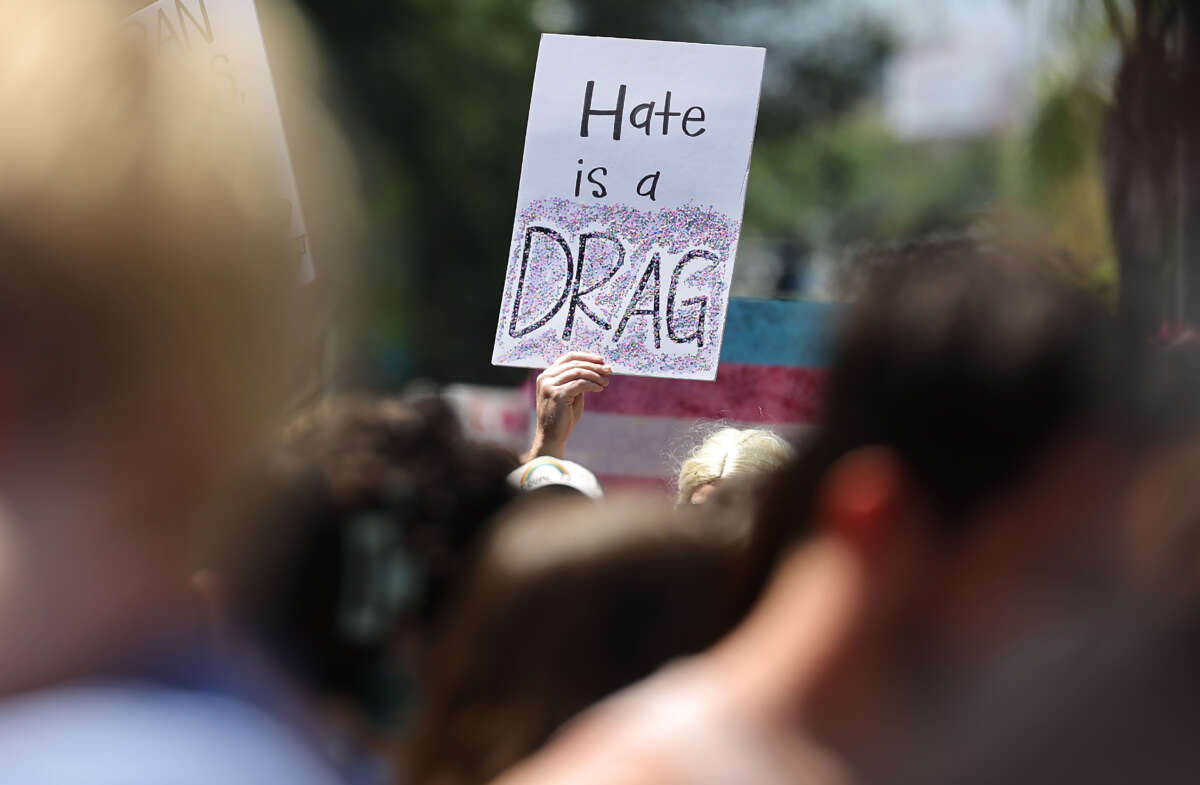Did you know that Truthout is a nonprofit and independently funded by readers like you? If you value what we do, please support our work with a donation.
A Tennessee district attorney is promising to prosecute the organizers of an LGBTQ Pride event, set to be held this weekend, if it includes performances that violate the state’s ban on drag or other “adult cabaret” performances — even though that ban is currently blocked from being enforced by a federal district court order.
Blount County District Attorney Ryan Desmond sent a memo to city and county officials as well as the organizers of Blount Pride, a yearly Pride festival held in the county, informing them that it is his legal opinion — purportedly based on advice from state officials — that he can still enforce the ban.
“It’s certainly possible that the event in question will not violate any of the criminal statutes,” Desmond’s message said, “however if sufficient evidence is presented to this office that these referenced criminal statutes have been violated, our office will ethically and justly prosecute these cases in the interest of justice.”
Tennessee was the first state in the country to pass an anti-drag law, a move that was widely condemned by LGBTQ advocates as an attack on LGBTQ people and culture. In June, District Judge Thomas Parker found the law to be unconstitutionally vague, and placed an injunction on its enforcement.
According to Desmond’s office, however, Parker’s ruling only applied to a different county official who tried to enforce the state ban after the enactment of the law.
“My office is aware of the June 2, 2023, District Court ruling from the Western District of Tennessee that found the [statute] unconstitutional and enjoined the District Attorney of the 30th Judicial District from prosecuting cases under these criminal statutes,” Desmond’s memo said. “It is clear from the holding and subsequent order that this enjoinder is presently only applicable to the 30th Judicial District.”
Desmond said that he based his opinion on advice from state Attorney General Jonathan Skrmetti’s office. He did not include any evidence of this advice within his memo.
Desmond’s claims that the enjoinment of the law does not apply to his jurisdiction are dubious, as the order from Parker also blocked enforcement of the law by state officials, including Skrmetti, whom Desmond is supposedly in consultation with. Such orders are generally viewed as meant to apply to an entire state, including local officials not mentioned.
Desmond has also claimed that Skrmetti’s appeal of Parker’s ruling implies that he can enforce the anti-drag law — however, in filing his appeal, Skrmetti never asked for a stay of the ruling.
It’s possible that the letter from Desmond may have goals beyond asserting a right to enforce an unenforceable law. Chris Geidner, who manages Law Dork, a Substack newsletter that examines legal and judicial issues, suggested that Desmond’s memo was also meant to quell the free speech rights of performers at Blount Pride.
“It’s hard for me to imagine a more clear example of a public official intending to create a ‘chilling effect’ on speech — particularly given the history of law enforcement abuse of LGBTQ people — than a prosecutor literally sending a letter to law enforcement, pride organizers, and the entities that run the space where the pride event is being held asserting that he is concerned that that event ‘may violate’ a new criminal law and that he intends to prosecute alleged violations of that law — particularly where that law has already been declared unconstitutional elsewhere in the state,” said Geidner, who was the first to report on Desmond’s memo.
Organizers of Blount Pride have responded to the memo by reminding LGBTQ community members that they are supported by many in the county.
“We want LGBT folks, and especially LGBT youth, to know that there are resources in this community,” Blount Pride Board president Ari Barker said in a statement. “There are people that will love them just as they are in this community and that they can build a good and full and connected life in Blount County.”
Speaking against the authoritarian crackdown
In the midst of a nationwide attack on civil liberties, Truthout urgently needs your help.
Journalism is a critical tool in the fight against Trump and his extremist agenda. The right wing knows this — that’s why they’ve taken over many legacy media publications.
But we won’t let truth be replaced by propaganda. As the Trump administration works to silence dissent, please support nonprofit independent journalism. Truthout is almost entirely funded by individual giving, so a one-time or monthly donation goes a long way. Click below to sustain our work.
